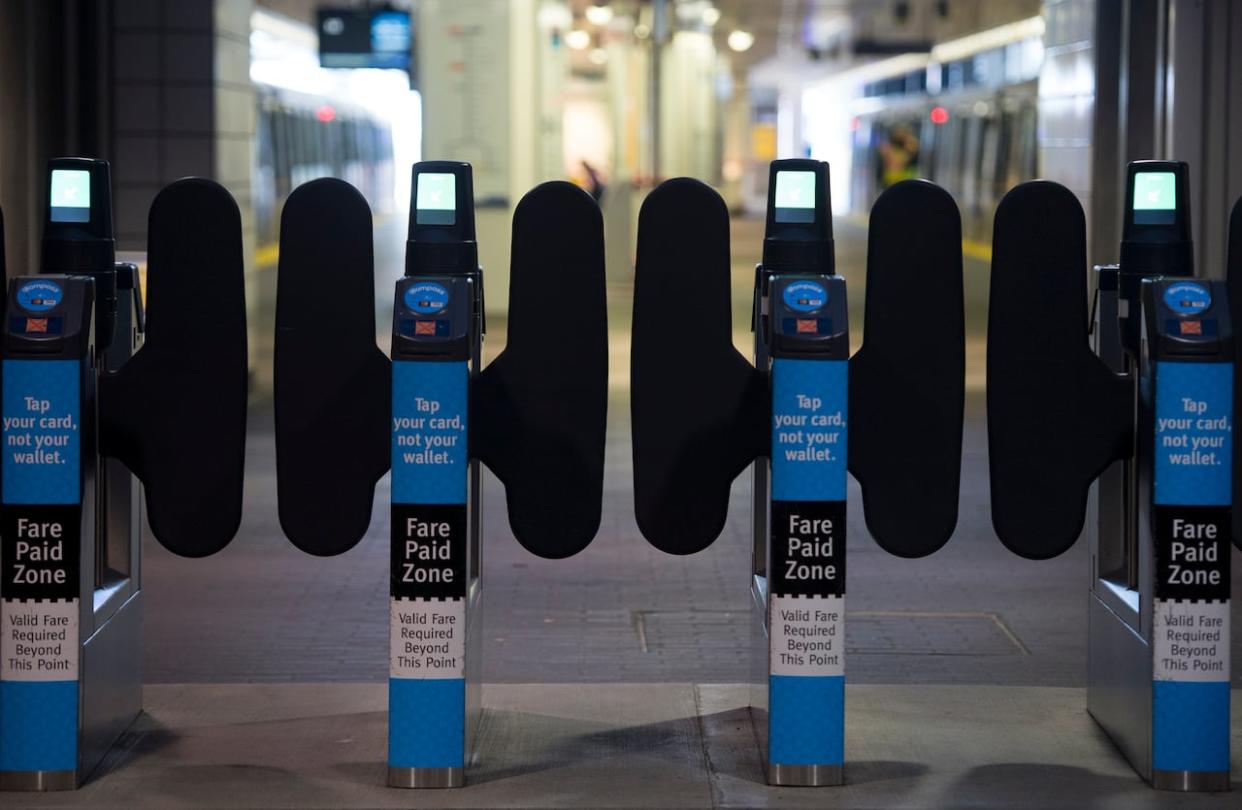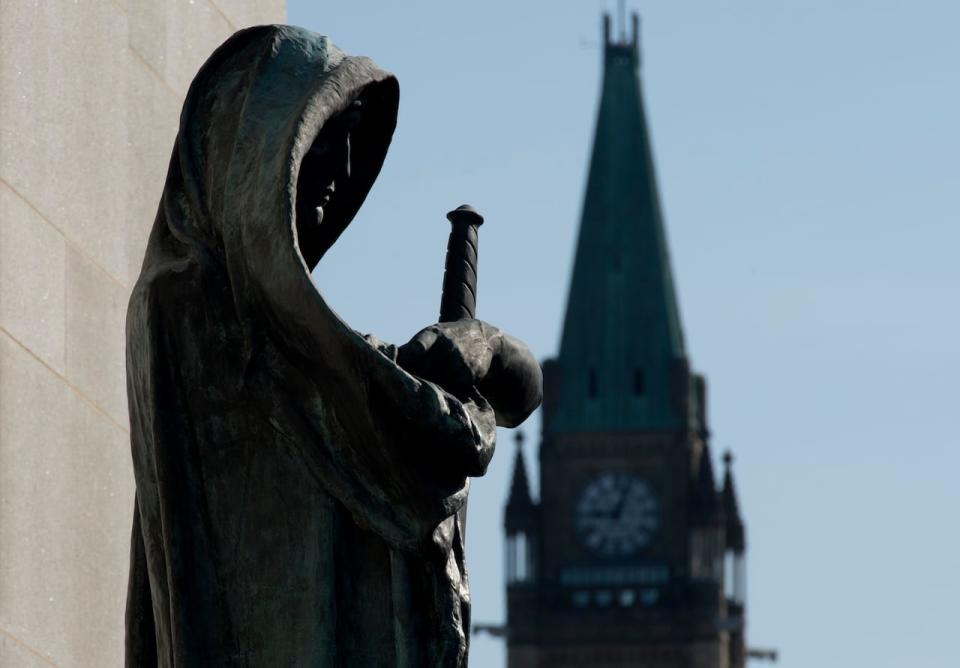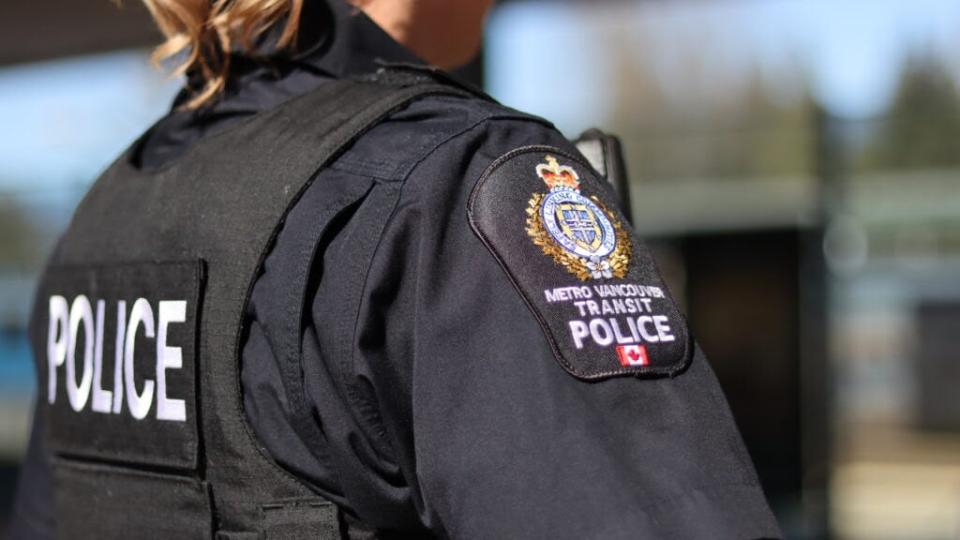Most voyeurism incidents on transit don't result in charges: data

On an April morning last year, a teenage girl was going up an escalator at the Waterfront SkyTrain station in Vancouver when a man pointed a phone up her skirt.
A woman saw this happen and yelled at the man to stop filming, which he denied doing, according to a Metro Vancouver Transit Police search warrant obtained by CBC News.
After police investigated, the man was arrested for voyeurism but wasn't charged. The vast majority of reported voyeurism incidents on Metro Vancouver transit from 2021 to 2023 have not resulted in charges, according to police data provided to CBC News.
Advocates for victims of sexual offences say it's difficult to lay charges in voyeurism cases and are calling for more to be done to address the problem. They also say many sexual offences on transit are never reported.
Voyeurism is defined as secretly watching or recording someone for a sexual purpose when they have a reasonable expectation of privacy. It's punishable with up to five years in jail.
Reported cases of voyeurism have remained low on Metro Vancouver transit. Police data shows 11 incidents from 2021 to 2023, yet only two charges have been laid.
"It's considered to be very low in terms of the criminal justice system. But the impact on victims' sense of safety, privacy, dignity is really profound," Hilla Kerner, a spokesperson for Vancouver Rape Relief and Women's Shelter, said in an interview.

The Supreme Court of Canada says the use of a cellphone to capture 'upskirt images of women on public transit' raises privacy concerns. (Adrian Wyld/The Canadian Press)
Reasonable expectation of privacy
Voyeurism was introduced to the Criminal Code of Canada in 2005 but the country's top court only dove into the implications of the offence in 2019 in a case about a London, Ont., teacher who secretly filmed female students' chests with a camera pen.
The Supreme Court of Canada ruled the students had a reasonable expectation of privacy, even in public spaces equipped with surveillance cameras. The court's decision also said "the use of a cellphone to capture upskirt images of women on public transit" would raise similar privacy concerns.
Most voyeurism incidents on Metro Vancouver transit didn't move forward because of "insufficient evidence," data showed. Transit police were not available for an interview.

Over the last decade, Metro Vancouver Transit Police have worked to raise awareness about sexual offences on transit. (Metro Vancouver Transit Police)
In the case involving the teenager at the SkyTrain station, police said in the search warrant they have "reasonable grounds" to believe an act of voyeurism was committed. The "reasonable grounds" include a witness who saw the incident, CCTV footage that showed the suspect standing "extremely close" to the teenager and the man's Compass Card history, which places him at the SkyTrain station at the same time as the teen.
Gillian Hnatiw is a civil litigation lawyer in Toronto who appeared on behalf of the Women's Legal Education and Action Fund in the case of the London teacher and urged the Supreme Court to think about voyeurism as a continuation of sexual violence. She says there is some ambiguity that can make it difficult to lay charges in these cases.
Hnatiw says police have to prove a secret recording was taken for a sexual purpose at a place where there is a reasonable expectation of privacy.
"Whether or not that recording is made for a sexual purpose can sometimes be open to debate. And whether there's this reasonable expectation of privacy when you're sitting there on public transit is also something that's open for debate," Hnatiw told CBC News.

Angela Marie MacDougall, executive director of Battered Women’s Support Services in Vancouver, wants more potential victims and bystanders to be aware of voyeurism incidents on transit. (Submitted by Angela Marie MacDougall)
Raising awareness
Over the last decade, Metro Vancouver Transit Police have worked to raise awareness about sexual offences on transit, according to a 2021 police report. The force has worked with community organizations including Vancouver-based Battered Women's Support Services (BWSS) to reduce victimization and enhance supports.
BWSS executive director Angela Marie MacDougall says sexual offences on transit are rampant and often go unreported.
According to the SkyTrain search warrant, the teenager told a witness "that this sort of thing happens to her, which is why she wears shorts under her skirt."
MacDougall wants more potential victims and bystanders to be aware of what they can do if they experience or witness voyeurism on transit.
"Educating people goes a long way to eliminating the problem altogether," she said.


